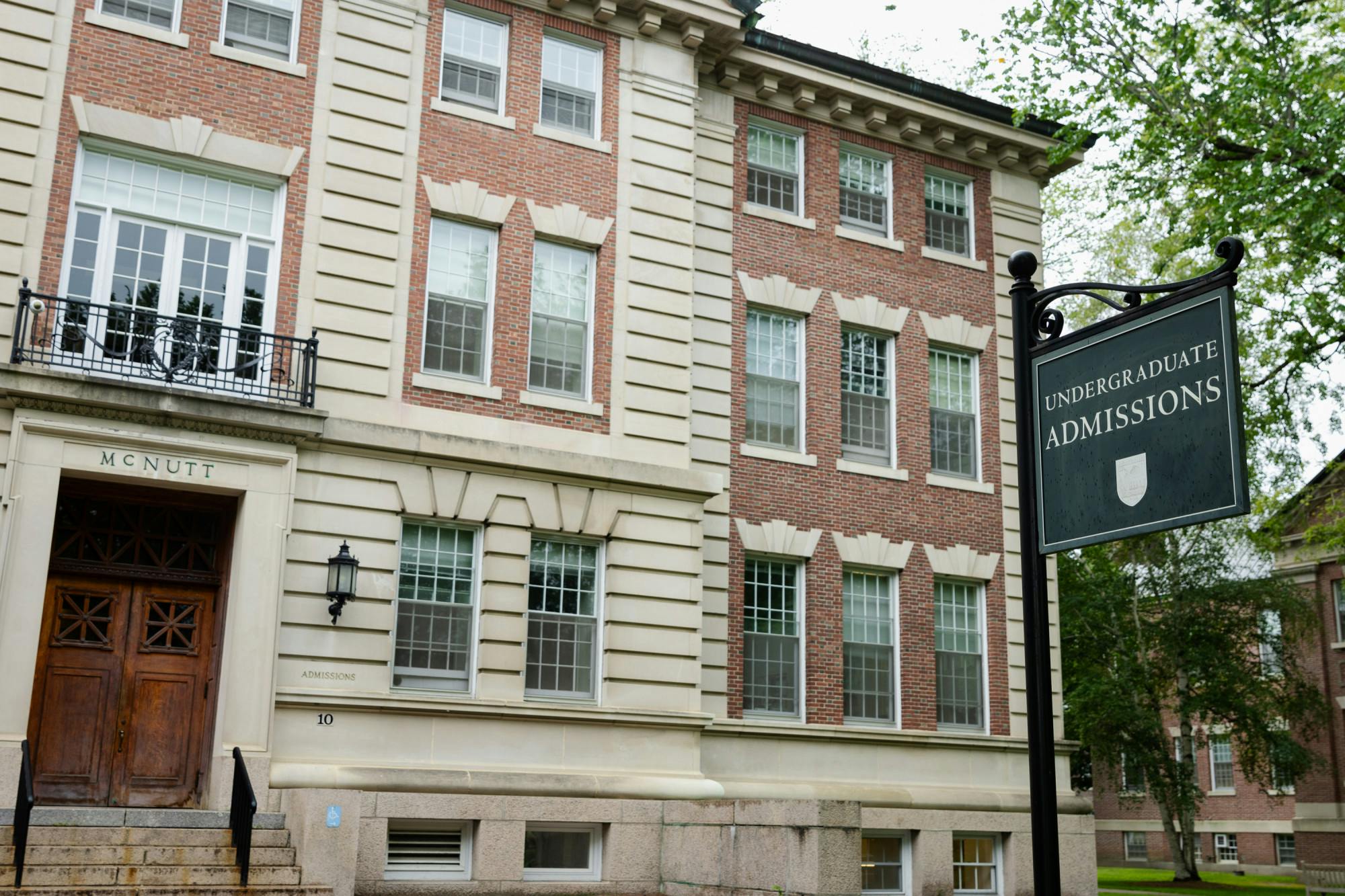During a court hearing on July 24, a lawyer for the College, Terri Mascherin, admitted that Dartmouth has considered donations when making admissions decisions. Mascherin’s admission came as part of an ongoing class action lawsuit filed in January 2022 — Henry, et al. v. Brown University, et al. — in which affected students and parents sued Dartmouth and 15 other “elite” colleges and universities for allegedly violating federal antitrust laws and inflating the cost of attendance.
The lawsuit claims that Defendants illegally colluded on financial aid policies through the 568 Presidents group, a consortium intended to standardize financial aid practices. According to past reporting from The Dartmouth, members of the 568 Presidents Group are allowed to confer on generalized admissions standards only if they are need-blind — known as the “568 Exemption.”
The plaintiffs allege, however, that at least nine of the defendants, including Dartmouth, have favored wealthy applicants in the admissions process for many years — and thus have not been practicing need-blind admissions. At the same time, members in the Group have also agreed on “a set of common standards” and a “common formula” for determining an applicant’s ability to pay for college, according to the suit. If true, Dartmouth and other defendants’ actions would violate antitrust laws.
In a January 2023 declaration for the case, Mascherin stated that Dartmouth would no longer assert the “Exemption Defense,” their earlier strategy in the lawsuit
“Dartmouth’s acknowledgement that it can no longer hide behind an inapplicable exemption from the antitrust laws is, of course, a significant development in the case,” Robert Gilbert, a partner at Gilbert Litigators and Counselors and one of the plaintiffs’ lead lawyers in the case, stated.
At the July 24 hearing, Mascherin detailed information about Dartmouth’s financial aid practices.
“We put forth a witness last week who gave testimony to the effect that each year in certain admissions decisions, candidates who were on the fence, if you will, would be admitted because of the interest of the alumni affairs and development office,” Mascherin said in a court transcript purchased by The Dartmouth.
Mascherin’s court statements come amid growing conversations about admissions favoring the wealthy at Dartmouth and other top universities. On July 26, The New York Times published an article on “elite” college admissions, reporting that applicants from the top 1% of wealth are five times more likely to attend Dartmouth than the average applicant with the same test score.
Four days later, the Times mentioned Dartmouth in an article titled, “The Legacy Dilemma: What to Do About Privileges for the Privileged?” In the article, Kially Ruiz ’98, the president of the Dartmouth Latino Alumni Association, spoke about how legacy admissions should not create “unfair advantages” for applicants while also acknowledging that legacy admissions bolster the College’s “very strong alumni community.”
During the hearing, Mascherin said that certain final admissions decisions were affected by information from alumni affairs.
“The records include an initial decision by the admissions department, information provided from alumni affairs and development with respect to a limited number of applicants and then a final admissions decision,” she said during the hearing. “In fact, for many years, there are reports that show initial decision, final decision. So it’s quite evident how the decisions changed as a result.”
At the hearing, U.S. District Judge Matthew Kennelly, who oversaw the hearing, expressed frustration because he believes the defendants may have withheld certain information from him. According to Kennelly, the Department of Justice and New York attorney general Letticia James are involved in a parallel investigation focusing on “the very same issues” of the class action case. Kennelly claims that he and the plaintiffs were not informed of this investigation.
“Why didn’t anybody tell me… that there was an investigation going on that already had at that point involved depositions being taken of people on the very same issues involved in this case?” Judge Kennelly asked during the hearing. “It should not be surprising to you that when I read all of this stuff, I figured, ‘Yeah, there’s a pretty good chance that I wasn’t told that on purpose.’”
He elaborated that this does not reflect positively on the defendants, noting that their actions could constitute “concealment,” which is the act of deliberately or not deliberately withholding information that otherwise should be disclosed. Kennelly added it is possible this incident “colors later rulings.”
Whether the defendants are found guilty, economics professor Christopher Snyder said that he believes “there’s just a general allegation that very rich people don’t have the same admissions rates” — a belief backed by the study from Opportunity Insights that was reported in the New York Times article from July 26. According to the Times, students from the richest 1% of families make up one in six students at elite colleges.
According to economics professor emeritus John Scott, the question of the case is whether the group’s partnership “conformed” with the Section 568 stipulations.
“Ultimately, the outcome of the case will depend on the details of what the 568 President’s Group actually did as they collaborated to determine their financial aid packages,” Scott said.
Snyder emphasized the “subtleties” of the case.
“I think the question is whether there are indirect ways that [need-blind policy] is being violated, at least by a subset of the schools,” Snyder said. “And if a subset of the schools are found to potentially use indirect ways to condition admission on need — [and] if there are enough schools in that group — to say this is a collusive agreement and a violation by antitrust.”
Ultimately, Snyder said Dartmouth considering donations could potentially implicate the College.
“If even one student gets let in because of lack of need, or the potential donations they can make, then you could allege that that’s a violation of the need-blind admissions,” Snyder said.
Representatives from Dartmouth’s Admissions and Financial Aid Offices, as well as Terri Mascherin, declined to comment.




